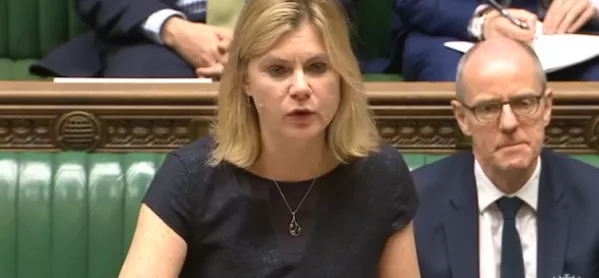Education secretary Justine Greening’s speech at the Conservative Party conference today centred on the £60million earmarked for improving social mobility in six “opportunity areas” across the country.
Her speech was light on any other new announcements, but she stated a desire to push on with the reform programme overseen by her predecessors Michael Gove and Nicky Morgan, and stressed that more school places were needed.
She attracted cheers from Tory delegates after accusing Labour MPs of “rank hypocrisy” for opposing new grammar schools despite, in some cases, sending their own children to them. She also took the opportunity to talk about her childhood in 1980s Rotherham, reminding the audience that she was the first comprehensive school-educated Conservative secretary of state for education.
Other than the money being channelled to social mobility “cold spots”, Ms Greening’s main messages were:
- Labour’s opposition to grammar schools is “rank hypocrisy” because “Labour shadow ministers send their children to grammars too, it’s classic Labour ‘do as I say not as I do.’” This statement is likely to irritate Labour leader Jeremy Corbyn who said he split up with his wife because of a disagreement over whether to send their son to a grammar.
- Grammar schools “have a track record of closing the attainment gap between children on free school meals and their better off classmates”. In grammars, children on free school meals progress twice as fast as other children.
- Grammars and selective schools will be challenged to work much harder at getting more disadvantaged pupils through their doors.
- There will need to be flexibility over the age at which pupils enter grammars, because “children develop at different speeds”.
- There needs to be a focus on creating more school places and ending “postcode lotteries”.
- The three “building blocks” needed to help young people be successful in future years are knowledge and skills, the right advice at the right time, and “great, challenging, life shaping experiences”.
Ms Greening told delegates: “We need a world class education system that works for everyone - all of our young people. And all of this has at its heart, a mission, to make ours a country where we’ve removed the barriers that stop people from being the best they can be.”
Want to keep up with the latest education news and opinion? Follow TES on Twitter and like TES on Facebook




